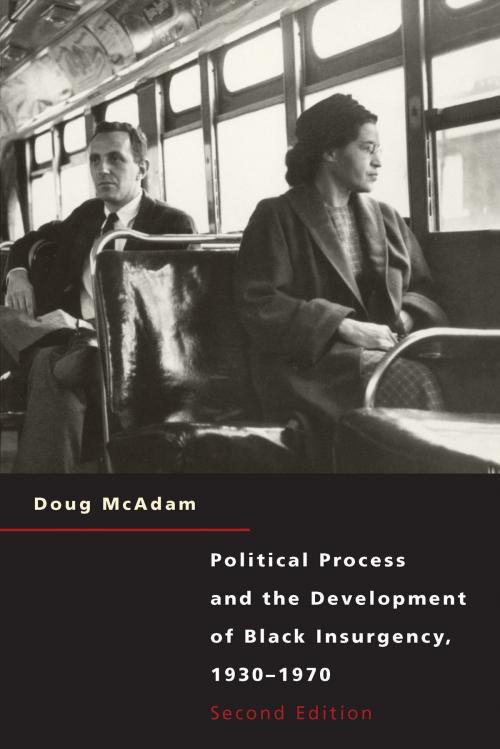Political Process and the Development of Black Insurgency, 1930-1970
Nonfiction, History, Americas, United States, 20th Century, Social & Cultural Studies, Political Science| Author: | Doug McAdam | ISBN: | 9780226555553 |
| Publisher: | University of Chicago Press | Publication: | May 15, 2010 |
| Imprint: | University of Chicago Press | Language: | English |
| Author: | Doug McAdam |
| ISBN: | 9780226555553 |
| Publisher: | University of Chicago Press |
| Publication: | May 15, 2010 |
| Imprint: | University of Chicago Press |
| Language: | English |
In this classic work of sociology, Doug McAdam presents a political-process model that explains the rise and decline of the black protest movement in the United States. Moving from theoretical concerns to empirical analysis, he focuses on the crucial role of three institutions that foster protest: black churches, black colleges, and Southern chapters of the NAACP. He concludes that political opportunities, a heightened sense of political efficacy, and the development of these three institutions played a central role in shaping the civil rights movement. In his new introduction, McAdam revisits the civil rights struggle in light of recent scholarship on social movement origins and collective action.
"[A] first-rate analytical demonstration that the civil rights movement was the culmination of a long process of building institutions in the black community."—Raymond Wolters, Journal of American History
"A fresh, rich, and dynamic model to explain the rise and decline of the black insurgency movement in the United States."—James W. Lamare, Annals of the American Academy of Political and Social Science
In this classic work of sociology, Doug McAdam presents a political-process model that explains the rise and decline of the black protest movement in the United States. Moving from theoretical concerns to empirical analysis, he focuses on the crucial role of three institutions that foster protest: black churches, black colleges, and Southern chapters of the NAACP. He concludes that political opportunities, a heightened sense of political efficacy, and the development of these three institutions played a central role in shaping the civil rights movement. In his new introduction, McAdam revisits the civil rights struggle in light of recent scholarship on social movement origins and collective action.
"[A] first-rate analytical demonstration that the civil rights movement was the culmination of a long process of building institutions in the black community."—Raymond Wolters, Journal of American History
"A fresh, rich, and dynamic model to explain the rise and decline of the black insurgency movement in the United States."—James W. Lamare, Annals of the American Academy of Political and Social Science















